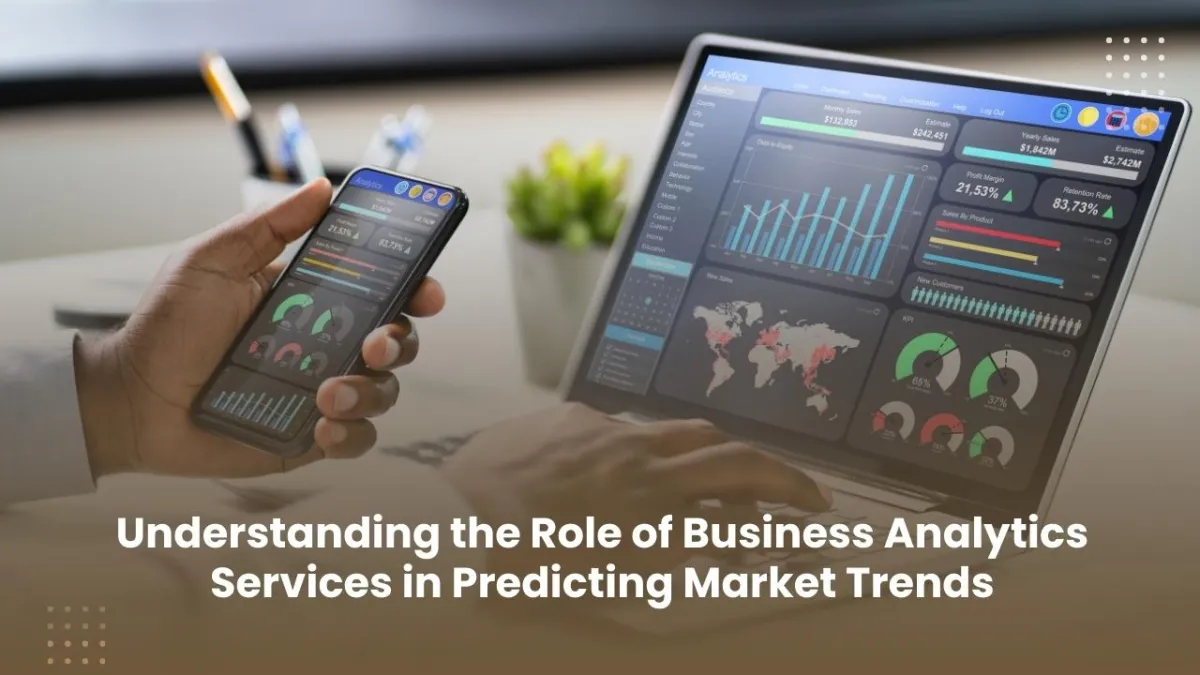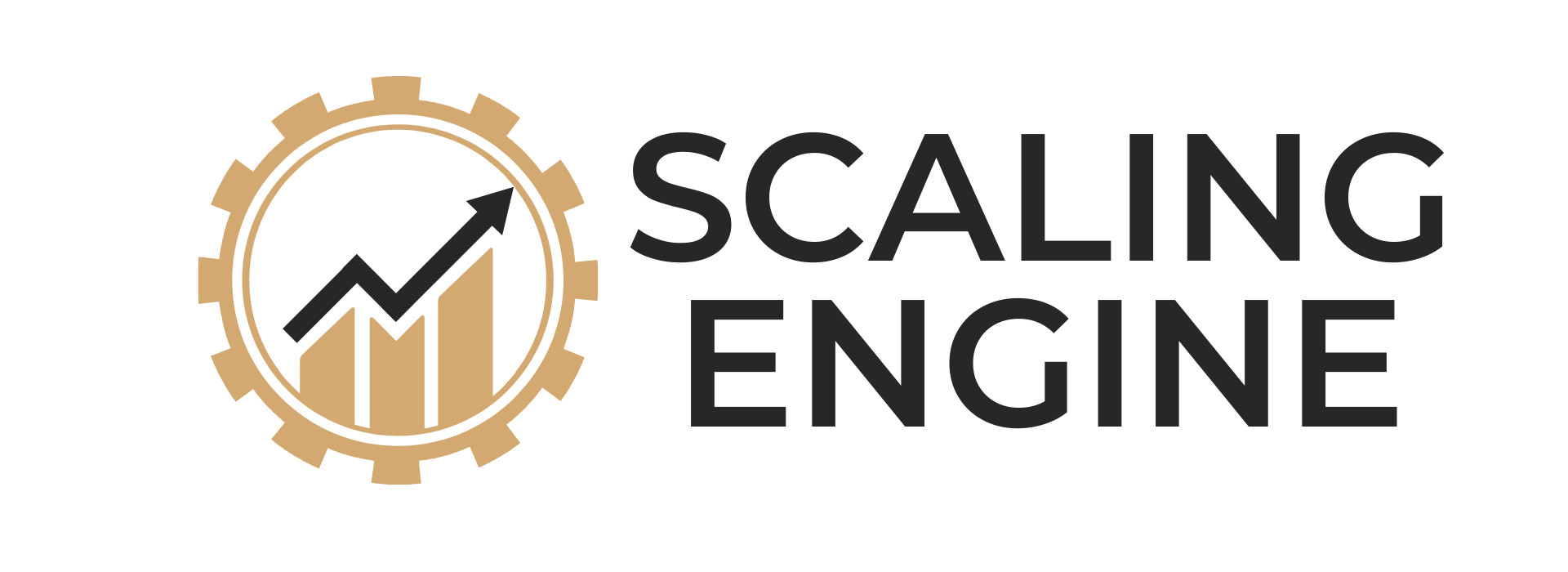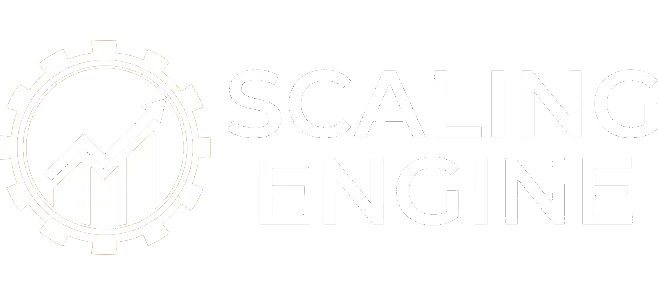
Understanding the Role of Business Analytics Services in Predicting Market Trends
In today's fast-paced business environment, the ability to predict market trends and reduce risk has become crucial for companies aiming to maintain a competitive edge. With the rise of data-driven decision-making, businesses can no longer rely solely on intuition and traditional methods to navigate complex markets. Instead, they are turning to business analytics services to gain valuable insights that can inform their strategies and mitigate potential risks.
Business analytics services leverage advanced analytics consulting techniques to turn raw data into actionable insights, allowing businesses to make informed decisions that improve their operations, increase profitability, and manage uncertainties more effectively.
The Power of Predictive Analytics
At the core of business analytics services lies predictive analytics—a branch of advanced analytics that uses historical data, machine learning algorithms, and statistical models to predict future outcomes. By analyzing trends and patterns in data, businesses can forecast potential shifts in market dynamics, customer behavior, and even industry disruptions. This helps organizations anticipate changes and adapt their strategies accordingly, ensuring they remain proactive rather than reactive.
Predictive analytics in business can offer a wide range of applications, from demand forecasting to financial planning. For example, a company in the retail industry could use predictive models to anticipate seasonal demand spikes, allowing them to adjust inventory levels, optimize supply chains, and improve customer satisfaction. Similarly, in the financial sector, predictive analytics can help forecast market fluctuations, providing insights for portfolio management and risk reduction.
However, predictive analytics is not just about forecasting trends—it's about equipping businesses with the knowledge to mitigate risks. By identifying patterns that indicate potential risks, such as market volatility, supply chain disruptions, or changes in consumer sentiment, businesses can take proactive steps to minimize these risks before they escalate.
Key Benefits of Business Analytics Services in Market Trend Prediction
Accurate Forecasting
One of the primary benefits of business analytics services is the ability to make more accurate predictions about market trends. Traditional methods, such as gut feeling and intuition, are often unreliable in today's data-driven world. Business analytics services rely on vast amounts of historical data, providing a more robust and evidence-based approach to forecasting. For example, advanced analytics consulting can help businesses in industries like finance and healthcare predict upcoming market changes, giving them an edge over competitors who rely on outdated methods.Timely Decision-Making
Speed is essential in today’s competitive marketplace. Businesses that can predict market shifts and trends early are better equipped to make timely, informed decisions. Business analytics services provide real-time data, enabling companies to quickly adjust their strategies in response to changing market conditions. This agility can be particularly crucial in industries like e-commerce, where customer preferences can shift rapidly, or in tech, where innovation drives constant disruption.Improved Risk Management
Market risks—whether they stem from economic fluctuations, regulatory changes, or supply chain disruptions—are inevitable. However, business analytics services can help businesses predict and understand these risks, allowing them to plan for potential setbacks. Advanced analytics consulting focuses on identifying early warning signals and building risk models that help companies assess the likelihood of specific events and their potential impact. With this information, businesses can implement risk management strategies, such as diversifying investments, altering supply chain routes, or adjusting marketing campaigns.Optimized Resource Allocation
By leveraging insights from business analytics services, companies can better allocate resources—whether it’s capital, inventory, or workforce—based on predicted market conditions. For instance, a manufacturing company might adjust its production schedule and workforce requirements depending on forecasted demand for its products. This optimized resource allocation leads to cost savings and improved operational efficiency, contributing to better overall business performance.Personalized Customer Experience
Predicting market trends is not only about the big picture but also about understanding consumer behavior on an individual level. Advanced analytics consulting services provide businesses with the tools to analyze customer data, uncover trends in purchasing patterns, and personalize marketing efforts accordingly. By predicting consumer needs and preferences, businesses can tailor their products, services, and communications to deliver an exceptional, personalized customer experience, fostering loyalty and driving revenue growth.
The Intersection of Business Analytics and Risk Reduction
While predictive analytics plays a pivotal role in forecasting market trends, it also plays a key role in reducing business risks. Risk reduction through business analytics services focuses on identifying potential threats before they arise and implementing measures to safeguard the business. This proactive approach to risk management is essential for businesses in today’s volatile and uncertain marketplace.
Identifying Emerging Risks
Business analytics services use sophisticated algorithms and data models to detect emerging risks that may not be immediately apparent. For example, by analyzing social media trends and news sentiment, analytics can predict shifts in public opinion, which can affect brand reputation or market demand. Early identification of such risks allows businesses to take steps to mitigate their impact.Supply Chain Risk Management
Supply chains are an integral part of any business, but they are also vulnerable to various risks, such as natural disasters, supplier bankruptcies, or geopolitical tensions. Business analytics services enable companies to analyze and track supply chain performance, predict disruptions, and develop contingency plans. By understanding the potential risks to their supply chains, businesses can secure alternative suppliers, adjust inventory levels, and implement more flexible logistics strategies.Financial Risk Forecasting
For financial services and investment firms, managing financial risk is paramount. Business analytics services can predict fluctuations in asset prices, interest rates, or currency exchange rates, enabling firms to adjust their portfolios and investment strategies accordingly. By understanding potential financial risks, businesses can diversify their investments and avoid exposure to volatile markets.Regulatory Compliance
In heavily regulated industries such as healthcare, finance, and energy, compliance risks are a significant concern. Business analytics services can help businesses stay ahead of regulatory changes by continuously monitoring industry regulations and legal requirements. By analyzing regulatory trends, businesses can ensure they remain compliant and avoid costly fines or penalties.
The Importance of Consultant Advanced Analytics in Risk Reduction
While business analytics services offer powerful capabilities, many businesses seek out consultant advanced analytics services to take their analytics efforts to the next level. Consultants specializing in advanced analytics bring expert knowledge, customized solutions, and industry-specific experience to the table, helping businesses navigate complex analytics challenges with ease.
A consultant in advanced analytics works closely with businesses to develop tailored strategies that address their unique needs. Whether it’s improving market trend forecasting, enhancing risk management practices, or optimizing business operations, an advanced analytics consultant can provide invaluable guidance. These experts use cutting-edge tools, techniques, and methodologies to uncover insights that may otherwise go unnoticed, helping businesses stay ahead of the competition and reduce risks effectively.
Using Business Analytics Services for Long-Term Success and Risk Mitigation
Now that we’ve explored the critical role of business analytics services in predicting market trends and reducing immediate risks, let’s delve deeper into how businesses can use these services for long-term success and ongoing risk mitigation. Predicting market trends and minimizing risks is not a one-time effort but an ongoing process that requires continuous data analysis, monitoring, and adapting to new insights. With the help of advanced analytics consulting, businesses can not only react to market changes but also build strategies for long-term resilience.
Building a Data-Driven Culture for Sustained Success
For business analytics services to truly make an impact, businesses need to foster a data-driven culture. This means moving beyond sporadic data use and embedding analytics deeply into the company’s operations and decision-making processes. By doing so, businesses can ensure that they are continually monitoring market trends and identifying risks in real-time.
Advanced analytics consulting can help companies transition into a more data-driven organization by introducing best practices, advanced tools, and tailored analytics strategies. Here are a few key steps that businesses can take to create a sustainable, data-driven approach to business analytics:
Investing in Technology and Tools
Data analytics platforms and tools are the foundation of any robust analytics strategy. Investing in the right software and technologies—such as predictive modeling tools, business intelligence platforms, and machine learning frameworks—enables businesses to gather, process, and analyze vast amounts of data. Consultant advanced analytics services help businesses identify the tools that best suit their needs and provide guidance on implementing them effectively.Creating a Cross-Functional Analytics Team
In order to maximize the impact of analytics, businesses need a team of skilled professionals across various departments, including marketing, operations, finance, and IT. This cross-functional team should collaborate to ensure that data analysis is integrated across all functions of the organization, enabling a holistic view of market trends and risks. Advanced analytics consultants often help organizations structure their analytics teams and define clear roles and responsibilities.Continuous Training and Skill Development
As analytics technologies evolve, so must the skills of the people using them. Business analytics services aren’t just about implementing tools; they also include ongoing training to ensure that team members are equipped with the latest analytical skills. Consultant advanced analytics services often provide training programs, workshops, and resources to help businesses stay on top of emerging trends in data analysis, predictive modeling, and artificial intelligence.
Advanced Analytics Techniques for Long-Term Risk Reduction
Incorporating advanced analytics consulting into the business strategy helps companies identify risks that could have long-term implications and devise strategies to mitigate them before they become major problems. By leveraging sophisticated analytics techniques, businesses can gain foresight into risks and continuously adjust their operations to ensure resilience.
Scenario Planning and Simulation Models
One of the key aspects of risk management is understanding the potential outcomes of different actions and events. Using scenario planning and simulation models, businesses can model various future scenarios, such as economic downturns, supply chain disruptions, or shifts in customer behavior. Advanced analytics consultants help companies develop these models to identify vulnerabilities and prepare for different outcomes, improving long-term decision-making.Real-Time Risk Monitoring
As markets and industries continue to evolve, risk factors change. Real-time risk monitoring ensures that businesses are always aware of emerging threats and can respond quickly to changes. By using advanced analytics techniques, such as data streaming and continuous monitoring, businesses can track key indicators that signal the onset of potential risks. This allows companies to take action quickly and minimize the impact of risks.Automated Risk Management Systems
Automation is another important factor in reducing long-term risks. Automated systems that integrate real-time data with risk management protocols allow businesses to respond to threats promptly. These systems can automatically trigger alerts or activate contingency plans when certain risk thresholds are met. Consultant advanced analytics experts help businesses design and implement these automated systems, ensuring that businesses are always prepared for unexpected challenges.
The Role of Advanced Analytics Consulting in Market Expansion and Strategic Growth
While much of the discussion around business analytics services centers on predicting market trends and risk mitigation, they also play a critical role in guiding businesses toward strategic growth and market expansion. By analyzing data and market dynamics, businesses can identify new opportunities and expand their reach with confidence.
Identifying New Market Opportunities
Business analytics services can reveal gaps in the market, identify underserved customer segments, and pinpoint emerging trends that businesses can capitalize on. Through advanced analytics, businesses can analyze data from various sources—including customer feedback, social media trends, and competitor performance—enabling them to identify new opportunities for growth. For example, a company may discover a rising demand for a particular product in a new geographic region, prompting them to expand their operations.Optimizing Product and Service Offerings
Understanding consumer preferences is essential for businesses looking to expand their product or service offerings. Business analytics services enable businesses to analyze purchasing patterns, customer feedback, and market research data, allowing them to tailor their products and services to meet the evolving needs of their target audience. This can result in more effective marketing strategies and higher customer retention rates, fostering long-term growth.Market Penetration Strategy
Advanced analytics can also help businesses understand how best to enter new markets. By using segmentation analysis and demand forecasting, companies can identify which markets are most likely to respond to their products or services. Advanced analytics consultants work closely with businesses to develop tailored market entry strategies based on data-driven insights, minimizing the risks associated with entering new markets.
The Future of Business Analytics: Evolving Trends and Technologies
The field of business analytics is continually evolving, with new technologies and methodologies emerging at a rapid pace. Staying ahead of these trends is critical for businesses that wish to maintain a competitive edge. As business analytics services continue to evolve, companies will increasingly rely on consultant advanced analytics to guide them through the complexities of new tools and approaches.
Artificial Intelligence and Machine Learning
Artificial intelligence (AI) and machine learning (ML) are at the forefront of business analytics innovation. These technologies allow businesses to automate data analysis, uncover hidden patterns, and make more accurate predictions. As these tools become more advanced, companies will increasingly rely on them to gain deeper insights into market trends and potential risks.Big Data and Cloud Computing
As data volumes continue to grow, businesses will need to leverage big data technologies to process and analyze vast amounts of information. Cloud computing will play a crucial role in enabling businesses to scale their analytics efforts, providing the infrastructure needed to store and analyze large datasets efficiently.Predictive and Prescriptive Analytics
While predictive analytics focuses on forecasting future events, prescriptive analytics takes this a step further by recommending specific actions businesses should take. As these technologies continue to evolve, businesses will be able to make more informed, data-driven decisions that lead to optimized performance and risk mitigation.
Conclusion:
The role of business analytics services in predicting market trends and reducing risk is undeniable. As businesses continue to face complex market challenges and uncertainties, they must embrace the power of advanced analytics to stay ahead of the curve. By leveraging predictive analytics, real-time data monitoring, and sophisticated risk management techniques, businesses can not only mitigate potential risks but also position themselves for long-term growth and success.
With the help of consultant advanced analytics experts, businesses can navigate this ever-changing landscape with confidence, ensuring they are always prepared for what the future holds.


